Putting Down the Badge and Picking Up the Pen
My service is part of who I am and, I hope, I have a unique perspective to bring to the table as both a former deputy sheriff and a liberty-minded writer.
I’ve recently made some pretty significant changes in my life. First off, for the big reveal, I’ve been working as a Deputy Sheriff for Salt Lake County for the last four years. For obvious reasons, I’ve maintained a pretty solid professional separation between my job in law enforcement and my political writings. I went into the profession both to make use of my skills from six years in the Army National Guard, but also because I was raised by a police officer, and I have the utmost respect for the honor and dignity of the profession.
But as my writing has gained more attention and as more opportunities have come my way in the realm of political philosophy, I have decided to go all-in with that direction. I’m hanging up the uniform and going back to college full-time to seek a Political Science degree.
I know, I know, with the professional separation I had maintained, I probably could have kept my recent profession under wraps until the present zeitgeist against police has blown over. But I am not ashamed of my service, nor do I think I should be. Anyone in law enforcement who has served honorably and out of a desire to help their community should feel proud of their service, and should be allowed to feel proud by the society they have served.
Further, my service is part of who I am and, I hope, I have a unique perspective to bring to the table as both a former deputy sheriff and a liberty-minded writer.
So, as my first foray in publicly talking about my former profession, I have some observations I’d like to share.
Get the Self-Evident Newsletter in your inbox:
Smoke, Fire, and Broken Glass
We were surrounded on all sides by an angry and hostile mob. We stood shoulder to shoulder, many of us without any protective gear, wondering if the crowd was going to rush the line. One officer had already been attacked viciously with a baseball bat, his life mercifully spared by the helmet he had been wearing.
Just ten minutes before, the call had come out over the radio for anyone available to respond to an officer down situation. With lights and sirens blaring, myself and another deputy joined a line of police vehicles heading to the scene. We had no idea what kind of situation we might be heading into. We knew that at least one police cruiser had already been flipped and set on fire, that rioters had begun tagging the nearby library and were knocking out glass windows at the adjacent light-rail station, and that looting had begun at a 7-11 across the street.
The streets were jammed with vehicles, and we had to proceed on foot the last several hundred yards to the destination of the call out. We ran through hostile groups of protestors, many of them yelling at us and daring us to react. One person threw something at my feet, and it exploded in a loud bang. My hand went to my pistol but, realizing it was just a firecracker, I chose not to unholster it. Several of the protesters jeered at me, some saying things like, “Don’t go shooting anybody, pig,” and others egging me on, shouting, “Do something!”
This was only just the beginning of one of the most harrowing days of my life. For eight hours, I stood shoulder to shoulder with officers from all across the Wasatch Front. We had rocks, bottles, and fireworks thrown at us. Aggressive rioters would get in our face, yelling obscenities and trying to get a reaction from us. All around us were signs and graffiti with threatening messages such as “F--k 12” and “No Justice, No Peace.” Multiple vehicles were flipped and set on fire.
The scene was not something I had been wholly unprepared for. I had military training and had prepared for an Afghanistan deployment before the 2011 Iraq withdrawal stood my unit down. But seeing such a scene play out on streets I had walked as a child, in a city I had known my whole life, was something I could never have been fully prepared for.
Eventually, the scene grew so chaotic, Governor Herbert called in the National Guard. Air Force Security Forces jumped out of Humvees and joined the line. Blackhawk helicopters from the 211th (my Dad’s old unit) arrive and provided air support. I even had to sweep several areas of tall grass for IEDs after reports were delivered to us that there had been tweets claiming they’d been placed there by rioters.
It felt like a warzone, in my city...in my home.
It was apocalyptic and almost medieval. The air was ugly and full of hate. Venom poured out of the mouths of the most hostile of the rioters, berating the line of officers as if we each were personally responsible for every injustice faced by anyone anywhere.
But the ugliest thing I saw, by far, was the treatment received by some of the African American officers. These law enforcement professionals were often singled out for the color of their skin and berated with the most disgusting of epithets. They were called “Uncle Toms,” “Race Traitors,” “Fake N*gg***s,” and much, much worse. This treatment hurt me to the core. It hurt all of us, because they were our brothers and sisters and deserved to be treated far better, both for the dignity of their calling and their willingness to do more than just tweet about society’s problems but to step forward and act productively towards a better future.
The Serially Ignored Reality of Post-Traumatic Stress in Law Enforcement
I only share my own personal experience to shed some light on the oft-ignored impact this season of social conflict is having on the law enforcement community. My experience is not only typical of officers across the country who have been forced to confront violence and lawlessness in recent months, but many have faced such days and nights time and time again.
The mental exhaustion and psychological impact of these constant clashes cannot be overstated. The jaded worldview, the encroaching nihilism, and the specter of post-traumatic stress that hovers over the law enforcement community, even in normal times, increases seven-fold when interactions with civilians become typically confrontational and often belligerent.
The high level of post-traumatic stress faced in law enforcement is already a serially ignored reality. I’ll be the first to admit that I’ve seen over-aggressive behavior in fellow officers. I’ve had to tap people out. I’ve had to have frank conversations. I’ve had to bring my concerns to superiors. But I’ve never presumed to judge the core humanity of any officer I’ve dealt with because lesser men and women would have gone to far darker places facing just a year of call-to-call shifts seeing the worst society has to offer day in and day out, let alone for fifteen years, twenty years, or thirty years.
A Lot of Good Ideas, A Few Really Bad Ones
There have been many good and well-considered ideas and proposed solutions that have been put forward this year. I offer my full weight of support behind many of them. I agree that any technique that purposefully targets the neck should only be used in situations where lethal force is justified. I agree that no-knock raids are used far too often and without proper justification, creating an often-deathly contradiction between police tactics and a citizen’s right to self-defense. I agree that qualified immunity needs to be dialed back so that each unique violation of a constitutional right doesn’t constitute a “freebie.”
I’ll even go so far as to assert that laws should be crafted specific to law enforcement action so that officers who acted inappropriately do not escape consequences because their actions fail to meet the elements laid out in criminal statutes (the military, for example, is governed by the Uniform Code of Military Justice with laws crafted specifically to the realities of military action). The perception of injustice in clearly questionable use-of-force scenarios stems more from the language of criminal homicide laws, which do not fit the unique circumstances of police action, than it does from innate bias or systemic racism in the justice system.
But when it comes to the idea of defunding the police, I cannot state my disagreement in strong enough terms. Today’s average police officer is over-worked, underpaid, and grossly ill-served regarding their mental health.
When I went through the police academy, I often heard that, ideally, an officer should be able to spend half their shift responding to calls and half their shift engaging in proactive patrol and community engagement. Specifically, officers should be encouraged to use their proactive time to seek out positive interaction and become part of the community (call it the Andy Griffith principle). Such a balance can lead to significantly better attitudes about society and far more balanced and hardy mental health. But I would be surprised if more than a few metropolitan police agencies and even a significant number of rural agencies can maintain such a balance.
Far more often, officers spend their entire shift catching up to the back-log of call-outs. When they do get a breather, they’d rather spend their time winding down from the chaos. They’re not afforded the time, nor space for mental preparedness, to seek out positive community relationships. Instead, they string together years of almost exclusive public interaction with the criminally engaged. They get lied to over and over again until they think everyone’s a liar. They get attacked and assaulted over and over again until they look at everyone as a threat. They get berated and insulted over and over again until every raised eyebrow becomes an attitude problem.
In short, grossly underfunded police agencies are one of the most significant factors in the current disconnect between police officers and the communities they serve. Anyone who wants to find real solutions to the genuine problems our society faces should dispense at once with the absurd idea of defunding the police. Instead, some of the chief goals we should be embracing are better paid, better trained, better staffed, and better-supported law enforcement agencies.
The Rift
Specifically, we as a society need to come to terms with the reality that the average police officer suffers from post-traumatic stress comparable to many combat veterans and that we are failing them not unlike how our country failed the generation of veterans that served in Vietnam.
Just as activists in the Vietnam Era projected their political disagreements with the war and the criminal acts of the few upon the soldiers of that time period, today’s police officers are facing the brunt of the hostility and vitriol over problems that are far beyond the average officer’s ability to fix.
I reject the premise embraced by far too many that significant numbers of law enforcement professionals hold racist attitudes or that many officers remain silent when they see abuse from fellow officers. As far as my personal experience goes, the maxim that “no one hates a bad cop more than a good cop” has been overwhelmingly true.
What I have seen is a growing rift between officers and the communities they serve, a rift often worse in communities where historical racism in law enforcement has existed or where historical poverty along ethnic lines is most acute. As this rift grows, it leads to more and more confrontation as officers and those they interact with become more and more distrustful of each other.
This is why the ongoing violence and the calls to defund the police only make the situation worse. If we aren’t careful as a society, if we choose to excuse away the confrontations that increase negative interaction between the police and their communities, if we ignore the real realities of growing post-traumatic stress in the law enforcement community, and if we strip agencies of their resources and man-power, we will only succeed in turning this rift into a chasm.
Stay Free My Friends,
-Justin


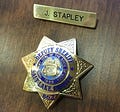

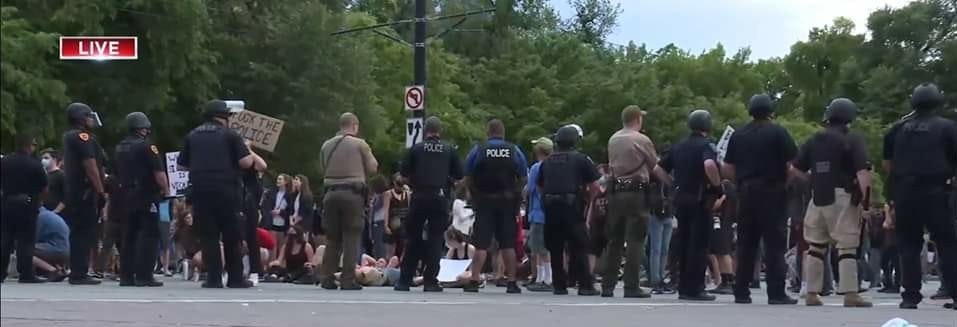
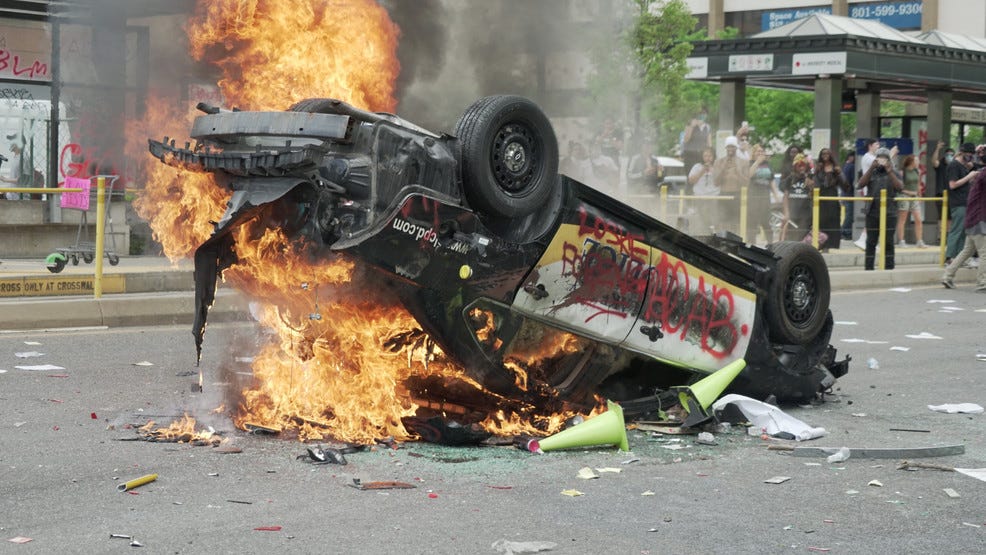
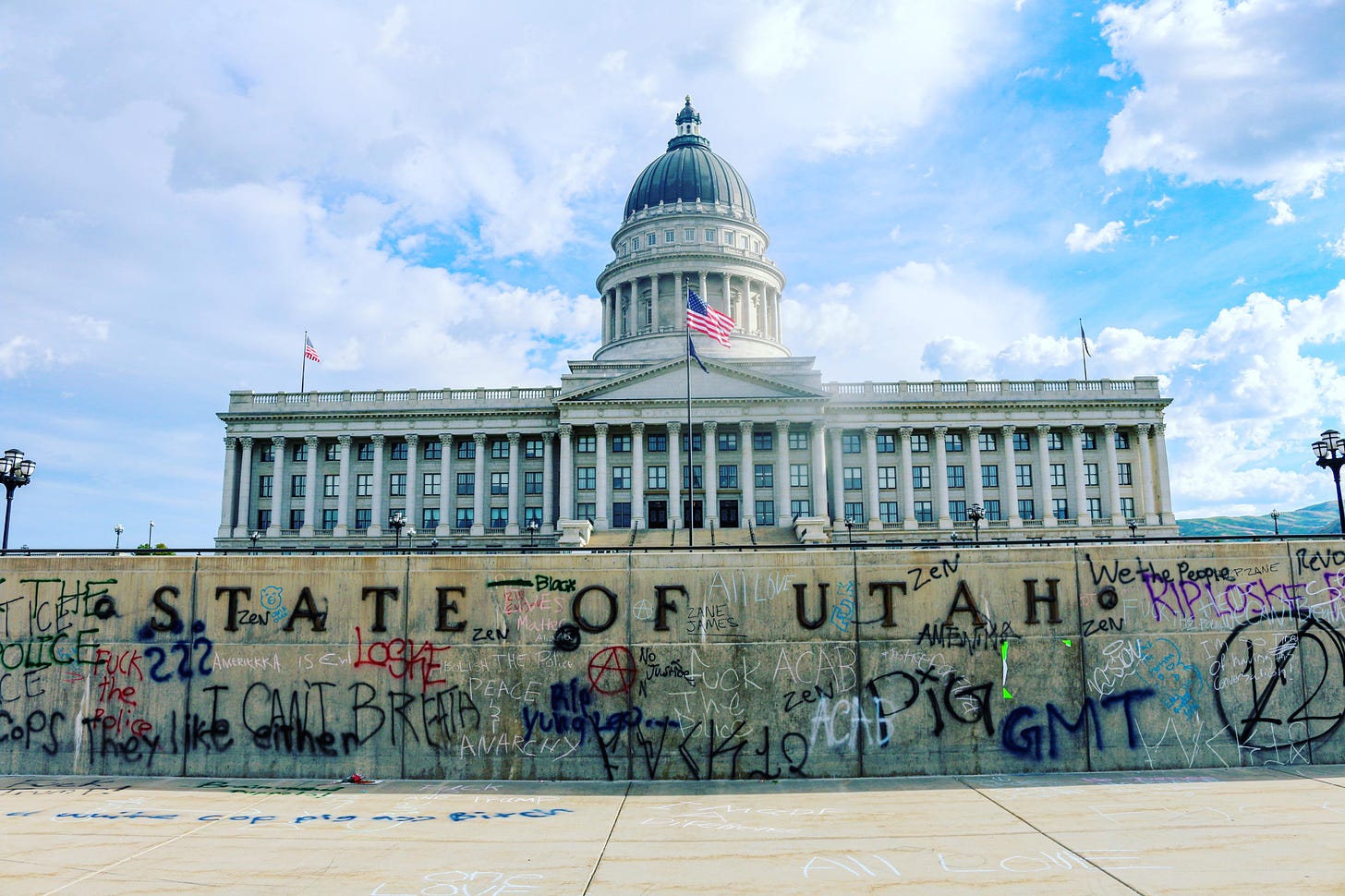
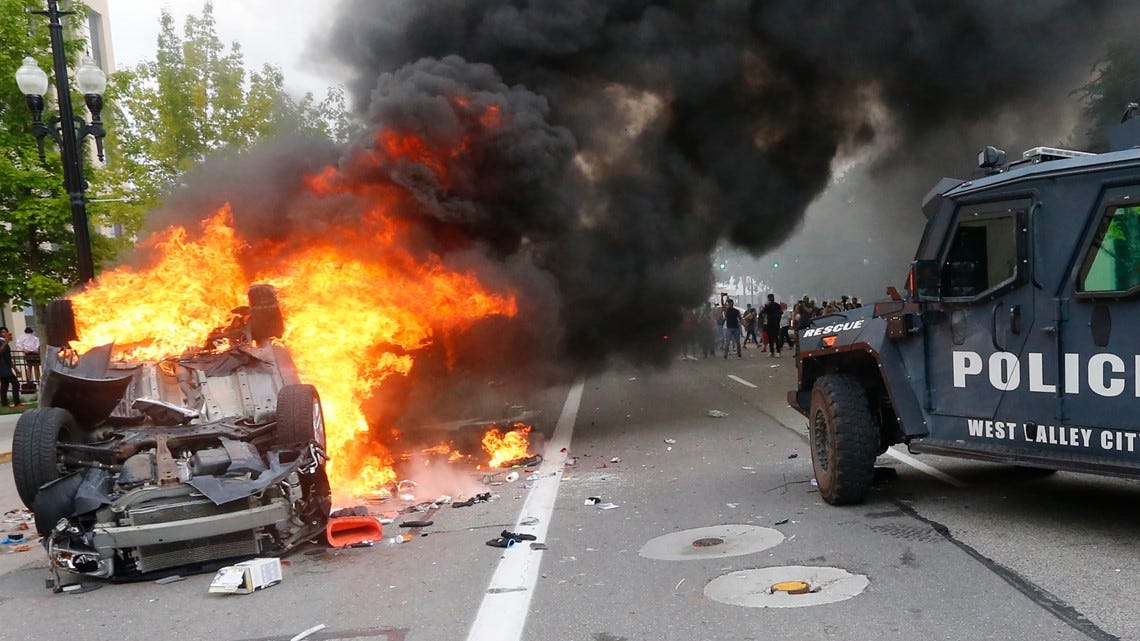
Justin! We're FB and Twitter friends, I think. Just to tell you this article is great.
Hello Justin, I am hesitant about joining the conversation because it always turn out democrats against republicans and that's a turnoff to me. How do I allow myself to believe this will be different?